Wild Camping Kit Guide for Beginners (Without Breaking the Bank)

This site has no affiliate links or sponsorships – I don’t get paid or make money from any of the links here. Every bit of content is created and funded by me alone, with the goal of providing an honest and helpful resource for the camping community.
Where to Begin
Wild camping kit for beginners – part two of a four-part series on wild camping in England – where I do most of my camping.
If you’re thinking about giving it a go, I’ll go over a few basics to help you get started. Hopefully it clears up some questions and gives you an idea of what you actually need – and what you don’t.
Wild camping really isn’t that complicated. Don’t overthink it. If you’re not climbing a mountain or paddling to a remote island, you’ll be fine. Most first camps are just one night out in decent weather – and that’s it.
You don’t need to spend a fortune on gear either. And if things aren’t perfect – no big deal. A bit of discomfort, maybe a rumbling stomach – it’s just one night. You’ll be home before you know it.
That first solo night can feel a bit odd, though. Being out there on your own, will definitely feel strange – it’s a new experience. But that’s part of what makes it great.
What You’ll Need
Don’t buy expensive gear just to try something once. If you enjoy it after your first go, then start upgrading and tailoring your kit to suit your needs.
Keep it cheap and simple. Beg or borrow to save money. The main advantage of expensive gear is usually the weight, but for a first-timer, don’t worry about that. Use what you can get your hands on.
Let’s assume it’ll be a mild, dry summer night – around 20°C (68°F). For one night in those conditions, you won’t need a thick sleeping bag or a high-end shelter. You will need a bag to comfortably carry all your gear.
Below are the essentials:
- Something to sleep in
- Something to sleep under
- Something to carry it all
I’ll show some examples of affordable new and used options – from sites like Temu, Amazon, eBay and high street stores like Decathlon and Mountain Warehouse. I’ll also include used gear from Gumtree and Facebook Marketplace so you can find something that suits your style and budget.
Sleeping Bag
Quick disclaimer: the gear listed here is just to give you a rough idea – I don’t earn anything from mentioning them and I’m not affiliated with any brands or websites.
At 20°C (68°F), you might not need a sleeping bag at all – a blanket could do the job. But here are a few cheap sleeping bags that would be more than enough for a warm night:
Amazon – 3-season bag rated to 5°C (41°F).

Temu – Bag rated down to 20°C (68°F) for just £14.99.

Mountain Warehouse – Regular price £24.99, currently on offer for £9.99. Rated to 10°C (50°F).

Decathlon – £9.99 sleeping bag recommended for temperatures around 20°C (68°F).
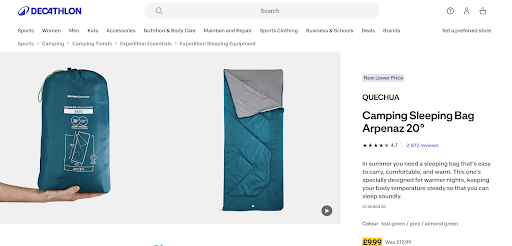
Gumtree – I searched locally in Dorset (July 2025). Prices vary, but there are plenty of used options out there.
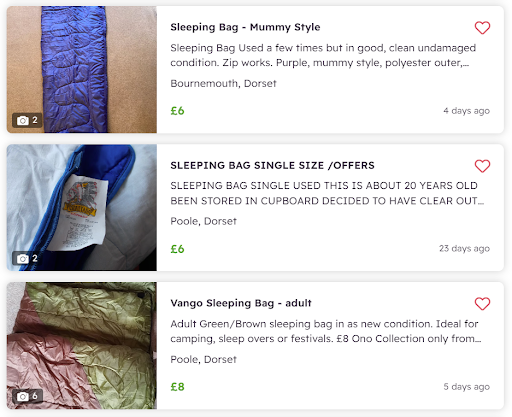
Facebook Marketplace – Lots of second-hand bags at low prices.
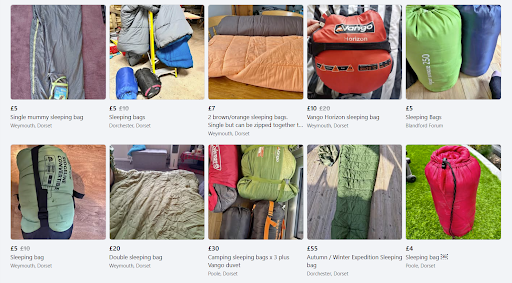
Shelter
There are different options, but for comfort and peace of mind, I’d recommend a tent for your first night. It’ll help you feel more secure and zipping it up keeps the bugs out.
One thing to note – tents can get warm inside on summer nights, and you may get condensation in the morning. But for a first-timer, it’ll do the job.
If you’re going alone, a one-person tent is enough. A two-person tent works too, especially if you want more space. Try to avoid bright colours. Some people love them, but I prefer something that blends in with the environment.
Here are some affordable options:
Amazon – A wide selection of budget-friendly tents.


Temu – Several one-person tents under £12.

Mountain Warehouse – Cheapest one-person tent currently on sale.
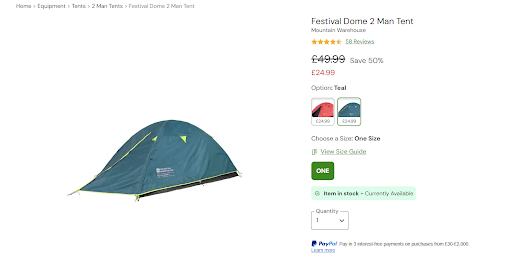
Decathlon – Offers basic tents for under £30.
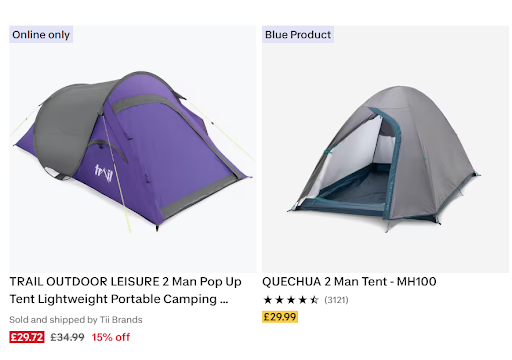
eBay – I came across a few new tents listed for under £14.
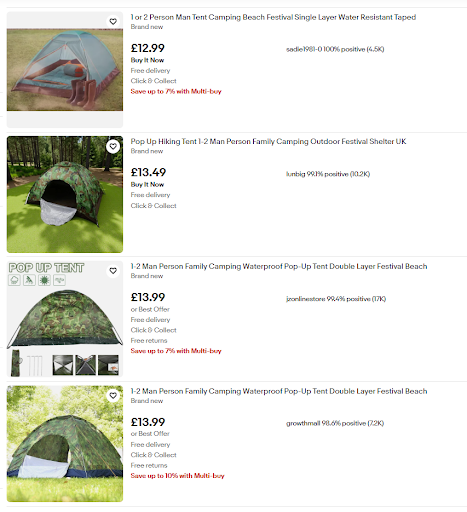
Gumtree – Gumtree had some large 4/5 person used tents were even listed for free.


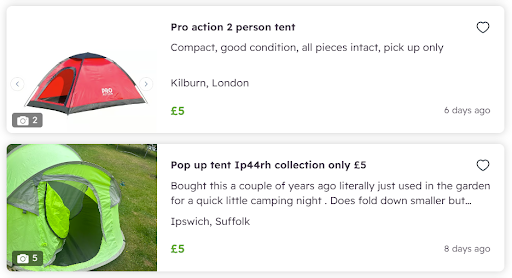
Facebook Marketplace – Loads of second-hand tents in good condition.
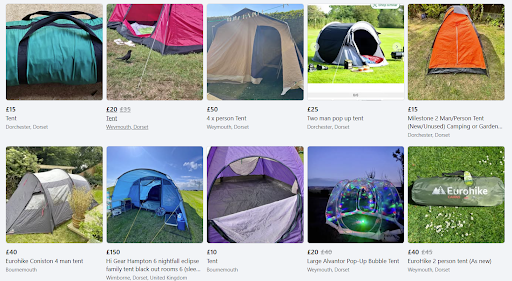
Backpack
Once you’ve got your gear, you’ll need a way to carry it. The size of the bag depends on your setup and how far you’re walking, but a 40L rucksack should be plenty for a night out.
Some examples:
Temu – Several budget options.
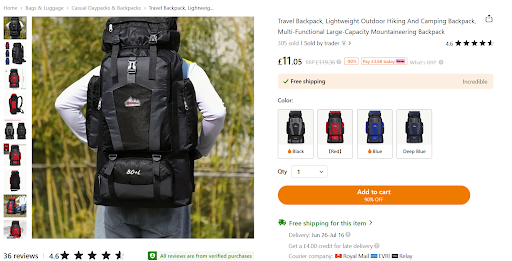
Online – Quick Google search brings up lots of cheap choices.

Mountain Warehouse – A new bag around the £40 mark.

Facebook Marketplace – A few used packs.
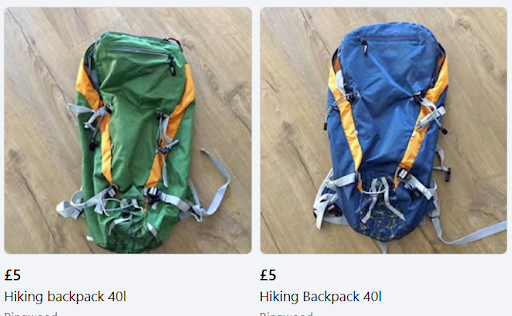
Gumtree – Found a few used bags, and one is just £15.
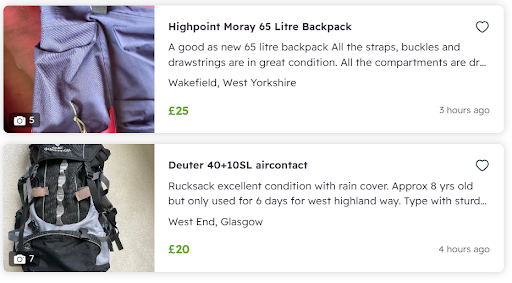

Optional Extras
These aren’t essentials, but they can make things more comfortable:
Torch or Headlight – Handy, but your phone light will do. I try not to use bright lights at night – they can attract attention.
Battery Pack – I always carry one because I use apps and take a lot of photos.
Sleeping Mat – Not necessary, but it adds comfort and insulation. I’ve slept on bare ground plenty of times. Festivals, hostels, camping – it’s doable.
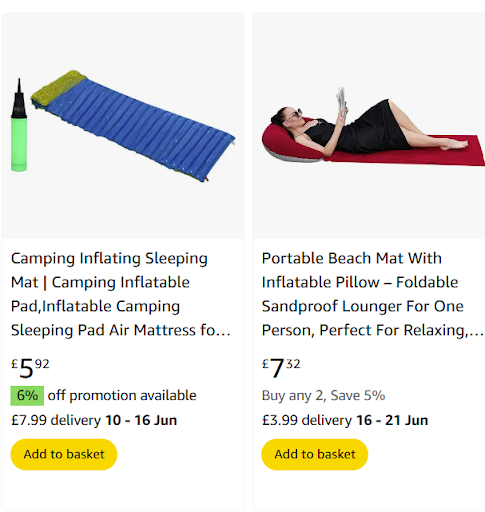
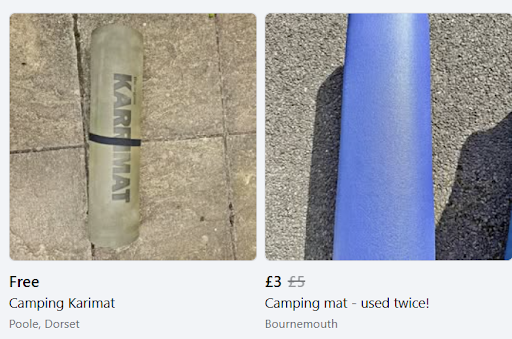
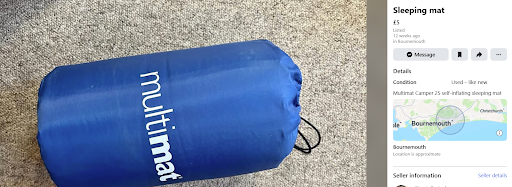
Food & Drink
Completely personal. For your first trip, keep it simple – pack a lunch or grab food from a shop. Cooking can be part of the fun, but it’s not necessary.
Some campers bring dehydrated meals, others cook from scratch and some just bring sandwiches. Whatever you do – bring plenty of water and stay hydrated.
A Word of Warning
Whatever you bring – take it all home. No trace. No excuses. Don’t leave your rubbish behind.
Fires and cooking equipment can cause major problems. I’m not endorsing any method, and I won’t tell you what to do – but be careful – especially in hot, dry conditions where there’s a real fire risk.
If you’re surrounded by dry ferns, dead leaves or timber – don’t light anything. It’s not worth it. And if there are signs saying no fires , please respect them.
Final Thought
I hope this gave you a clearer idea of what gear you need for your first night out. You don’t need to spend big to find out if wild camping’s for you.
At night, the forest changes. You’ll hear new sounds – some unfamiliar and possibly unsettling. From deer barking to frogs croaking and insects buzzing, the nighttime wildlife is very much alive.
I often camp in the New Forest, which is home to deer, horses and livestock. They all move around at night, and the deer especially make themselves known.
Safety
Know your limits. Know where you are. Tell someone where you’re going. Take enough food, water and appropriate kit. Don’t take unnecessary risks.
Further Reading
This is just an overview. I’d recommend reading more about Leave No Trace and wild camping etiquette. There’s lots of good advice out there to help you get started the right way.
Wild camping is incredible – but it comes with responsibilities. We owe it to the land, the communities and future visitors to treat it with respect.
One selfish or careless night can ruin it for others. So please, be considerate – and don’t spoil it for everyone else.
🌿 Want to Take Things Further?
I run a private, invite-only wild camping community. I share location ideas, gear tips and loads of practical advice in a respectful and relaxed space. Whether you’re just starting out or looking to build your skills, there’s plenty of support and inspiration.
If you’d like to join, drop me a message or email me at contact@ourscapes.com , and I’ll send you an invite.
Spaces are limited to keep it friendly and focused – would love to have you on board.
Please leave no trace.
If you have any questions, please don’t hesitate to contact me via social media or the contact form which can be found on the contact page.
Your feedback is important. Let me know if you enjoyed the blog – and even if you didn’t, I’d love to hear your thoughts.
Thanks for taking the time to read the article.
Many thanks
Dan
#wildcamping #campingetiquette #leavenotrace #responsiblecamping #campingengland #outdooradvice #firsttimecamping #campingequipment #whatgeartotake


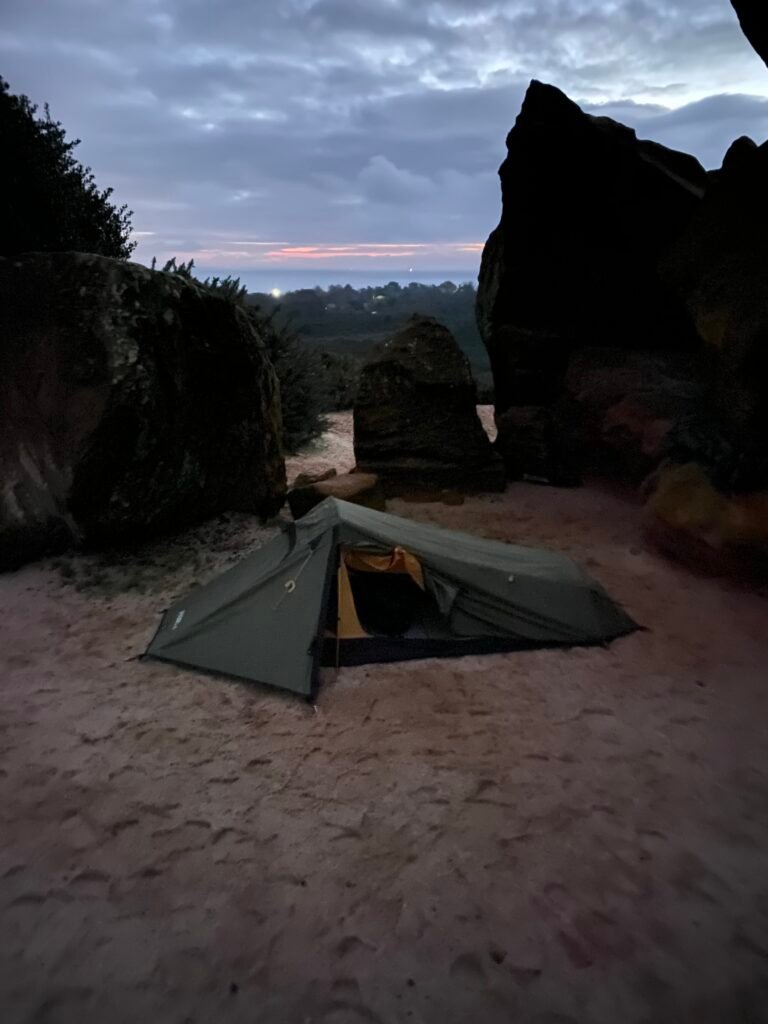

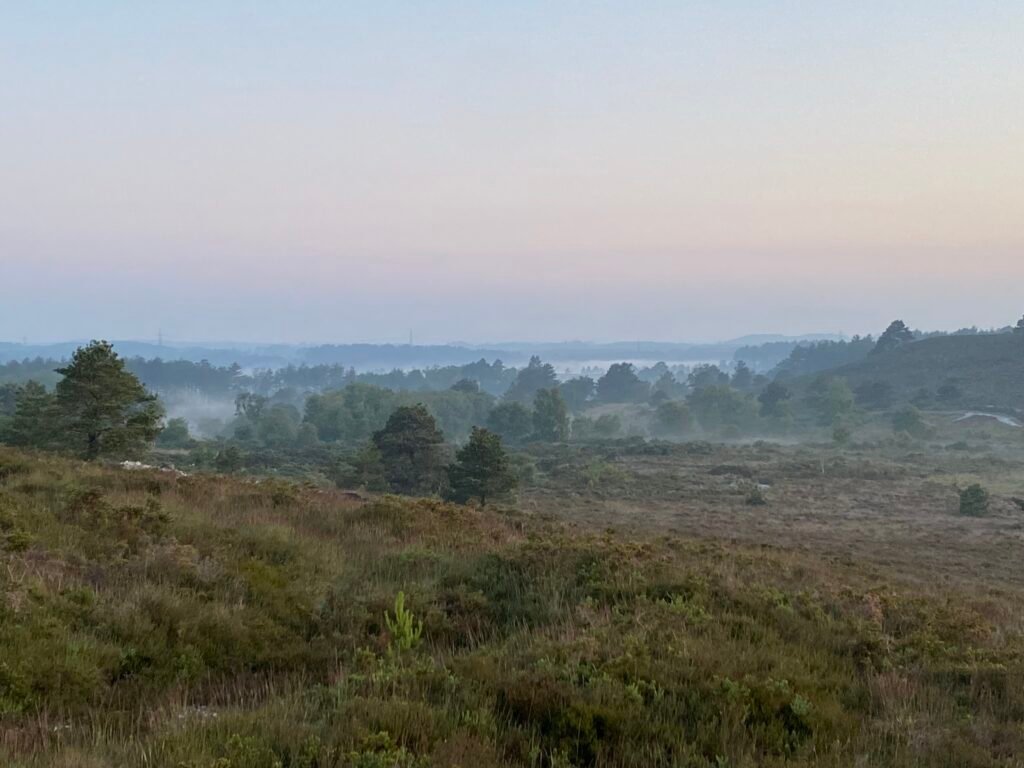

Responses